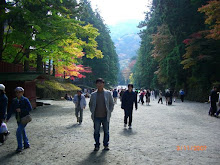 At Davos a year ago, the business and finance crowd were still full of the joys of globalisation, while it was the people dealing with international politics who were spreading alarm and despondency. This year the roles were reversed. While the financiers are frightened, the politicians and diplomats are going through a relatively calm period. There is less bloodshed in Iraq; the chances of war between the US and Iran have receded.
At Davos a year ago, the business and finance crowd were still full of the joys of globalisation, while it was the people dealing with international politics who were spreading alarm and despondency. This year the roles were reversed. While the financiers are frightened, the politicians and diplomats are going through a relatively calm period. There is less bloodshed in Iraq; the chances of war between the US and Iran have receded. The costs of food and energy are rising fast. The availability of water is also becoming an issue, from Australia to Africa. The struggle for these three basic commodities – food, energy and water – came up repeatedly in Davos.
Globalisation – in particular the rise of China and India – is driving a lot of these changes. The world oil price has risen by 80 per cent over the past 12 months and China alone has accounted for about 40 per cent of the increase in oil demand. Global food prices have gone up by about 50 per cent this year. There are short-term reasons for this, such as a drought in Australia and pig disease in China. But the biggest long-term driver of increased prices is growing wealth in China and India.
Urbanisation and industrialisation are both increasing demand for water, at a time when climate change is disrupting supply. The food, energy and water problems all touch on each other. America’s pursuit of alternatives to oil has led to massive investment in biofuels made from maize. That in turn has cut the amount of maize being used for food production and so contributed to rising food prices. The production of biofuels is also very water-intensive. Meanwhile, increased demand for agricultural land to grow more food is leading to the clearing of forest in Brazil – which could worsen global warming – leading to further stress on the world’s water supplies. The potential for political conflicts increases along with the rise in food, energy and water prices. Water shortages had helped to cause the conflict in Darfur. All of these examples are confined within national boundaries. But competition for food, water and energy could also provoke conflict between countries.
The theme of this year’s World Economic Forum was meant to be “collaborative innovation”. It is difficult to think of anything less collaborative or innovative than a new era of resource wars.

No comments:
Post a Comment